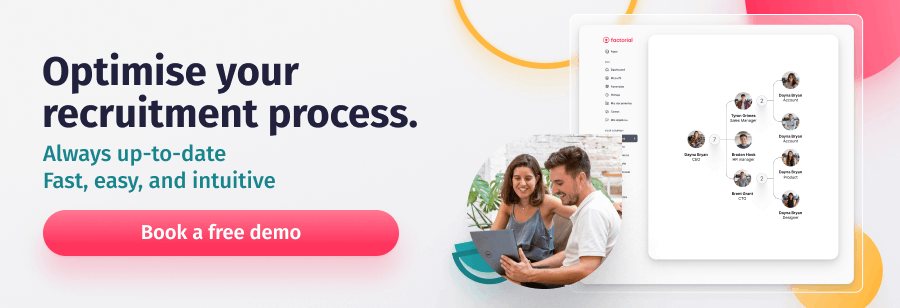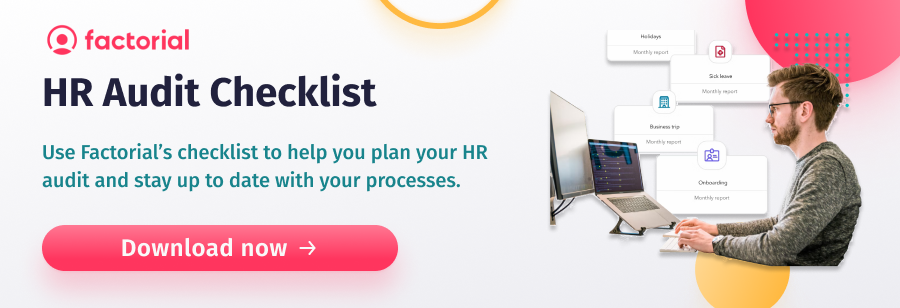The traditional hiring process is broken!
It has long relied on CVs, interviews, and academic qualifications as primary indicators of a candidate’s suitability for a role. However, as the dynamics of the job market evolve and businesses strive to stay competitive in a rapidly changing world, there is a growing realisation (still not widespread enough) that skill-based hiring is not only the future but also the present.
This article explores the benefits of skill-based hiring and why it is crucial for businesses to adopt this approach in their recruitment processes. And of course, I’ll talk a little also about the great advantages it brings for job seekers.
The Limitations of Traditional Hiring Methods
CVs have been the cornerstone of the hiring process for decades. While they provide a snapshot of a candidate’s academic background, work experience, and sometimes skills, they often fail to capture the full potential and capabilities of an individual. A classic CV alone cannot effectively demonstrate how well a candidate can perform in a specific role or adapt to new challenges, as we well know from how many people don’t even make it through probation.
Similarly, interviews, although valuable for assessing a candidate’s personality and communication skills, can be subjective and prone to bias. Unconscious biases such as gender, ethnicity, or age can inadvertently influence hiring decisions, leading to missed opportunities for diverse talent and hindering organisational growth.
What is Skill-Based Hiring?
Skill-based hiring is a recruitment strategy that focusses on the skills and competencies that a candidate can demonstrate they have, rather than relying on information about the individual’s qualifications or experience.
Put another way, skill-based hiring prioritises what a candidate can do rather than what they have.
When companies use skill-based hiring to recruit new staff, they often put a greater emphasis on work-related tasks or structured competency-based interviews to assess a candidate’s abilities.
The Rise of Skill-Based Hiring
Skill-based hiring takes a more comprehensive and objective approach to evaluating candidates. It focuses on assessing the specific skills and competencies required for a particular job rather than relying solely on qualifications or past experiences. By emphasising skills, this approach enables organisations to identify candidates who possess the abilities necessary to succeed in a role, regardless of their background.
Benefits of Skill-Based Hiring
If you’re a company hiring manager or recruiter and you’re still not convinced, read on! These are just some of the incredible benefits of skill-based hiring.
- Enhanced Talent Pool: Skill-based hiring allows employers to tap into a broader talent pool. By prioritising skills over traditional markers, such as education or job titles, organisations can identify candidates who possess the necessary expertise, even if they come from unconventional backgrounds. This promotes diversity and inclusion, bringing in fresh perspectives and ideas.
- Relevant and Adaptable Workforce: In a fast-paced and ever-evolving business landscape, agility and adaptability are paramount. Skill-based hiring ensures that candidates possess the specific skills required to excel in a given role, allowing organisations to build a more versatile and capable workforce. By hiring individuals based on transferable skills and willingness to learn, businesses can adapt more effectively to technological advancements and market shifts.
- Improved Employee Retention: When employees are hired based on their skills and competencies, they are more likely to feel a sense of fulfilment and alignment with their roles. This increased job satisfaction translates into higher employee engagement, motivation, and productivity. Skill-based hiring reduces the risk of hiring mismatches and enhances the likelihood of retaining top talent.
- Objective Evaluation: Skill-based hiring introduces objectivity into the recruitment process. Rather than relying on subjective judgments, organisations can use standardised assessments, simulations, and practical tests to evaluate candidates’ skills. This approach minimises biases and ensures that hiring decisions are based on merit and potential.
- Cost and Time Efficiency: Traditional hiring methods often involve lengthy processes, including reviewing numerous CVs and conducting multiple rounds of interviews. Skill-based hiring streamlines the recruitment process by focusing on the essential skills, reducing the time and resources required to identify qualified candidates. This efficiency leads to cost savings and faster hiring cycles, enabling organisations to respond swiftly to business needs.
The Main Steps to Skill-Based Hiring
The following six steps form the basis of a skill-based hiring approach:
- Understand the core skills needed for the role: these should include technical, soft and transferable skills.
- Create a job description that focusses on these skills: reframe the language to avoid sentence such as ‘2 years of customer management experience’ and use ‘Essential to be able to work with customers’.
- Ensure the screening process uses competencies as the key element: this means that candidates who demonstrate in their application that they have the skills required will be interviewed and not those who rely on their qualifications or experience.
- Develop skill-focussed assessments: include case studies, practical tests and scenario-based questions to evaluate how the candidates would use the skills they have in the role.
- Use competency-based interview questions: ask applicants to talk about a time they have demonstrate a skill, rather than what they have specifically achieved, and use a specific criteria to assess how they respond.
- Make data-driven decisions: combine the information you gain from the tests and the interviews to make an objective decision based on how the candidate demonstrated their skills.
Implementing Skill-Based Hiring
To embrace skill-based hiring, organisations need to adapt their recruitment practices accordingly:
- Define Role-Specific Skills: Clearly outline the skills and competencies required for each role within the organisation. This includes technical skills, soft skills, and any industry-specific knowledge necessary for success.
- Structured Assessments: Develop standardised assessments or simulations that allow candidates to demonstrate their skills in a controlled environment. These assessments should align with the desired skills and competencies for the role.
- Collaborative Hiring Process: Involve multiple stakeholders, including hiring managers, team members, and subject matter experts, in the evaluation process. This ensures a comprehensive and balanced assessment of a candidate’s skills and potential fit within the organisation.
- Skill-Based Job Descriptions: Craft job descriptions that clearly outline the required skills and competencies rather than focusing solely on qualifications and experience. This encourages candidates from diverse backgrounds to apply, as they can showcase their skills regardless of their educational or professional history. It’s worth stressing this should not include how many years of experience you’d like the person to have had in an industry, as that’s counter to the very concept of skill-based hiring!
- Upskilling and Training Opportunities: Implement initiatives to support continuous learning and development for existing employees. By investing in upskilling programmes, organisations not only strengthen their current workforce but also create opportunities for individuals seeking career transitions or advancement.
Benefits for Job Seekers and Those Making Career Transitions
Skill-based hiring also brings a multitude of benefits for those of you looking for a new job or new career altogether. Given the countless rounds of redundancies we are currently seeing in the market, these benefits become vital.
To name a few:
- Equal Opportunity: Skill-based hiring levels the playing field and provides equal opportunities for all candidates, regardless of your educational background or work experience. It allows you to showcase your skills and potential, enabling career shifts or entry into new industries based on your abilities rather than predetermined criteria.
- Demonstrable Skills: Instead of solely relying on academic degrees or job titles, skill-based hiring enables you to showcase your actual skills and competencies. This approach empowers those who have acquired skills through alternative means such as online courses, certifications, or personal projects, enabling them to compete on a level playing field.
- Career Transitions: Skill-based hiring opens doors for those of you looking to make career transitions. It allows you to highlight transferable skills that can be applied across industries or roles, showcasing your ability to adapt and thrive in new environments. This means you can focus on developing and highlighting specific skills that align with your desired career path, increasing your chances of successfully transitioning into new roles.
- Lifelong Learning Mindset: Skill-based hiring encourages us all to adopt a lifelong learning mindset. Knowing that skills are highly valued, job seekers are more motivated to continuously enhance their abilities and stay updated with industry trends. This commitment to personal and professional growth increases employability and opens doors to new opportunities throughout their careers.
- Personalised Career Growth: Skill-based hiring enables you to align your skills and interests with job opportunities that offer personal and professional growth. Think about it: how great it is to be able to identify roles that challenge and leverage your skill sets, providing a more fulfilling and rewarding career trajectory. This personalised approach to career development promotes long-term job satisfaction and engagement.
Using Factorial to Find Top Talent
Skill-based hiring is not only the future of recruitment but a necessary shift in the present. By focusing on skills and competencies, organisations can tap into a diverse talent pool, foster agility and adaptability, and make objective and informed hiring decisions.
For job seekers, skill-based hiring offers equal opportunities, promotes lifelong learning, and enables career transitions based on demonstrated abilities. It finally puts a formal end to linear careers that have dominated the workplace for far too long and allows more and more people to reach retirement with no regrets!
With Factorial’s applicant tracking system you can find the best talent for your company using a skill-based approach. Our system allows you to create filters so you can screen candidates based on their competencies, enables personal communication with candidates so they feel valued from the first interaction with the company and centralises all the documentation and assessment information to save you time.
How good does that sound? Book your free demo today.





